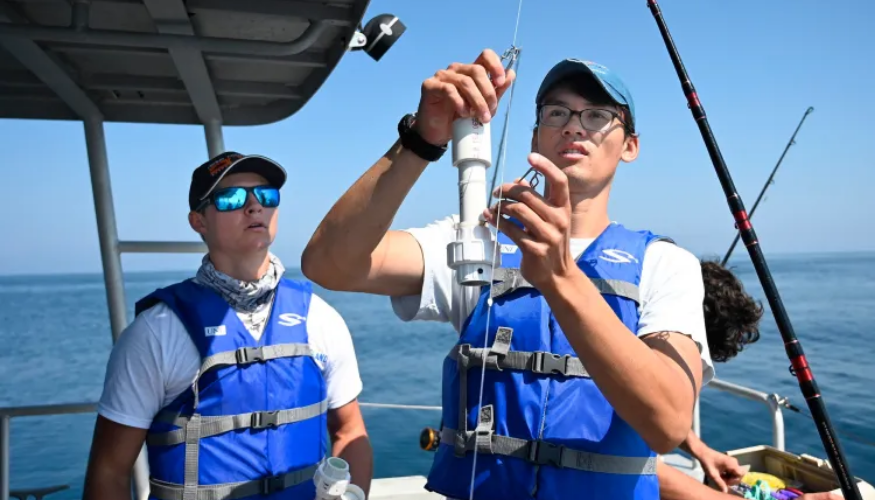UNE students lead research to aid fishermen and protect sea life

Students from New England Council member, the University of New England, are researching how electrical pulses can effectively protect sharks from accidental fishing while saving fishermen time and money.
The technology, which works by emitting small, erratic electrical impulses within the water, intends to scare away sharks, who can detect electrical fields, while leaving the intended catch unaffected. If the devices, which can be attached next to each fishing hook, are as effective as anticipated, they can significantly reduce shark bycatch on longline fishing apparatus. This result would reduce waste and catch inefficiencies for fishermen and protect sharks from being caught unintentionally.
Over the past decades, as fishing efforts have increased significantly, sharks and other marine life have seen their populations drop, in major part due to bycatch. The work by UNE students and faculty attempts to simultaneously minimize harm to wildlife, while boosting the sustainability and success of fishermen. While there is plenty of work left to be done before a final device is perfected, students understand how valuable this technology could become.
“[The fishermen] lose a lot of money, and they know it,” Nguyen said. “We are still trying to work out specifics. This is a long way away from being integrated into any commercial fisheries, but there’s a lot of interest, a lot of need, especially now that they see the electrical field isn’t scaring away the tuna.”
The New England Council commends the University of New England and its students for their research into mutually beneficial fishing technologies.
Read more from the Portland Press Herald.